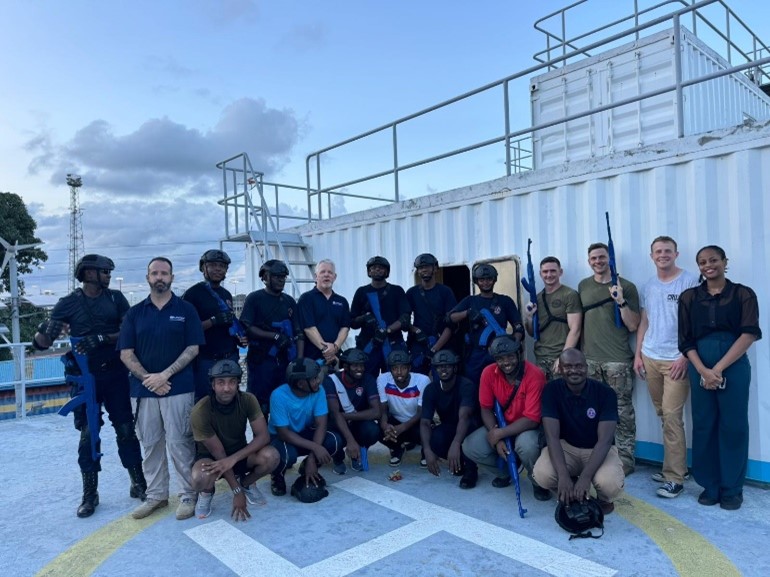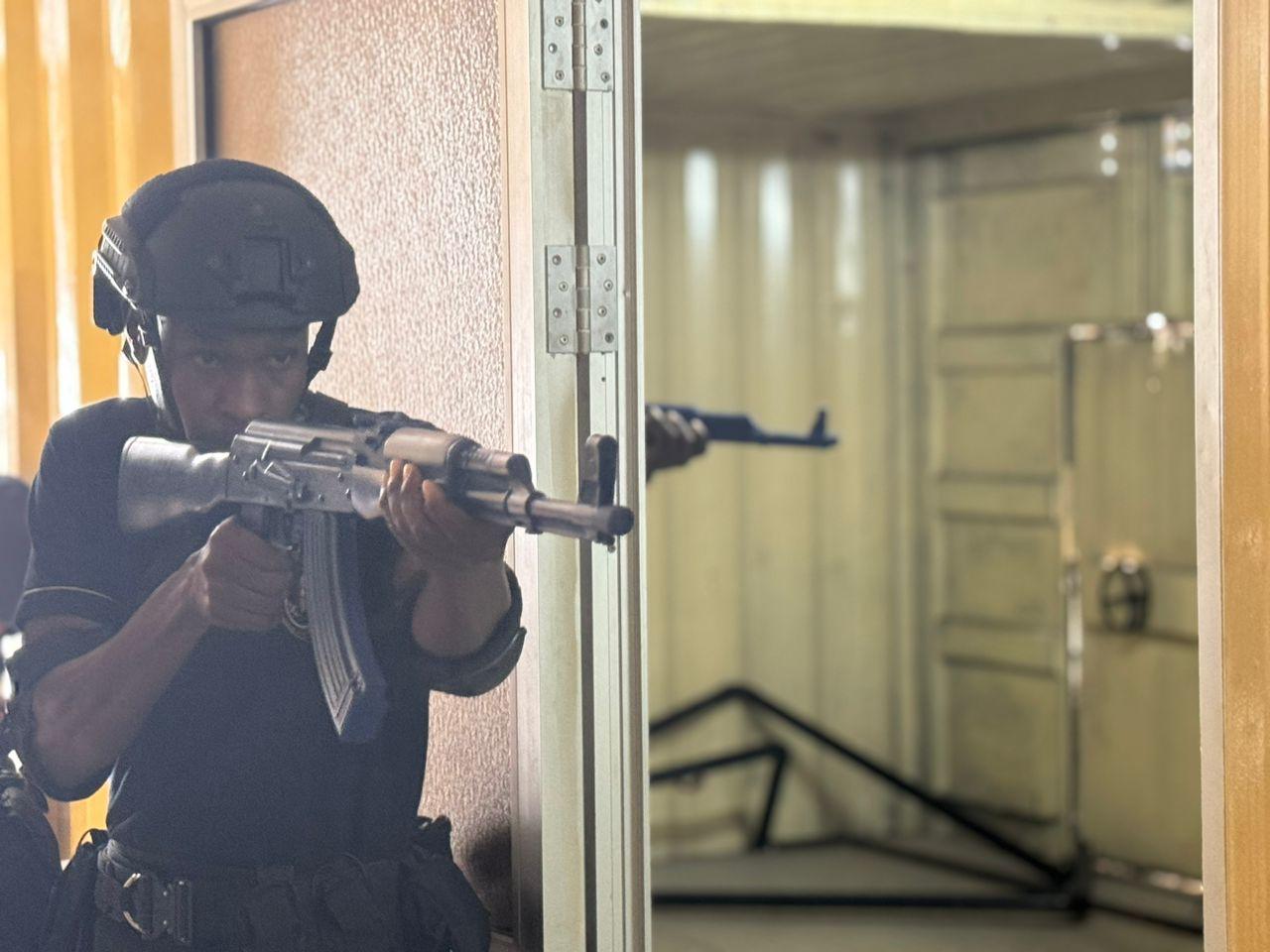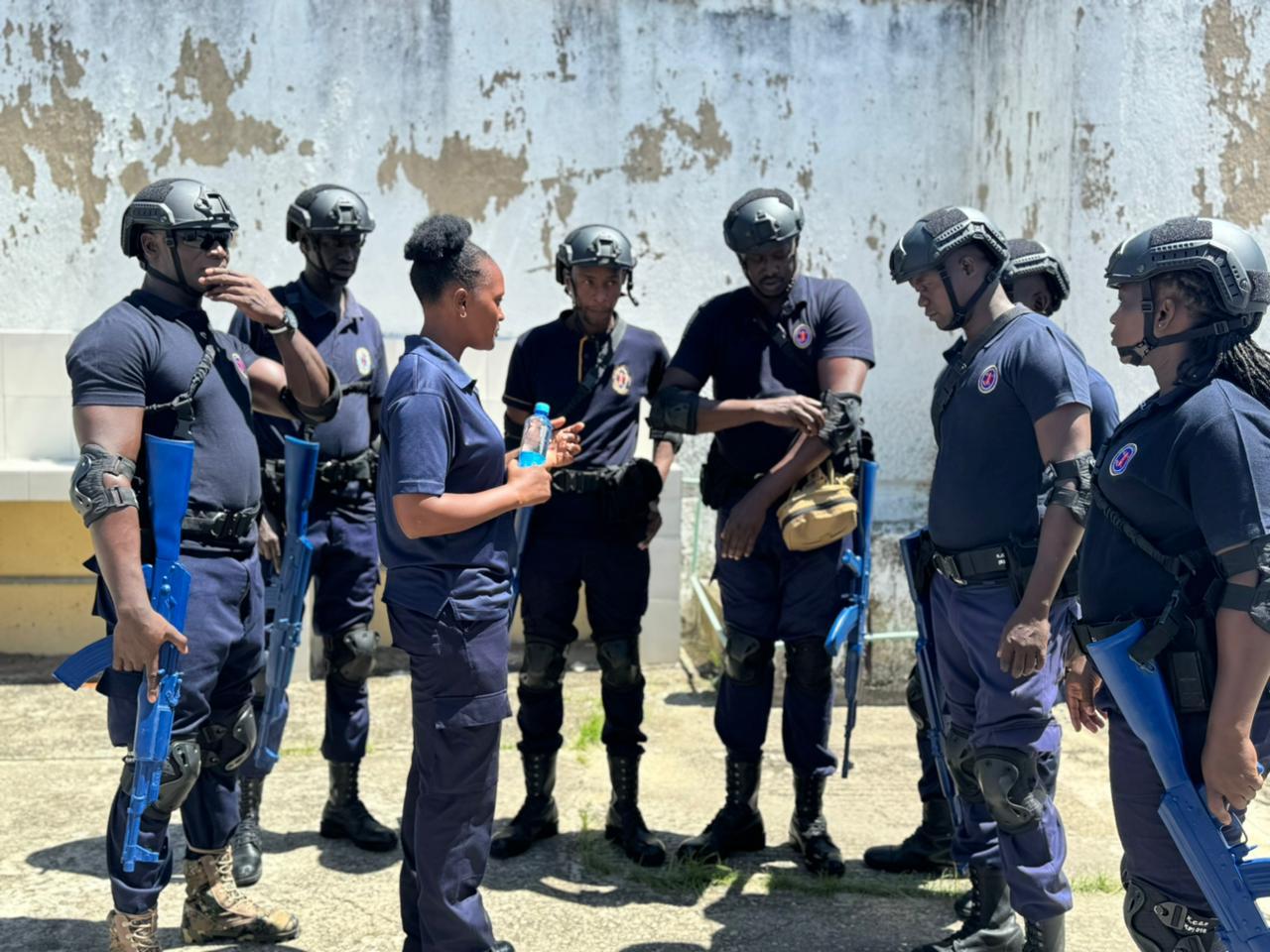UNODC Eastern Africa News and Stories
You are here: Home / News
Building a Motivated and Efficient Workforce within the Kenya Coast Guard Service
 The Kenya Coast Guard Service (KCGS), a vital institution for maritime security, has undergone significant transformation through the Foundational Training Programme (FTP) spearheaded by the United Nations Office on Drugs and Crime Global Maritime Crime Programme (UNODC GMCP). This comprehensive initiative has now successfully completed six cohorts. The plan is for all officers within the KCGS drawn from 12 different stations across the country to receive this training within the next two years, aiming to establish a uniformly high standard of capability and readiness across the entire service through a phased implementation approach. This comprehensive training strategy aims to equip every officer with the skills and knowledge necessary to perform their duties effectively, thereby enhancing the overall operational efficiency of the Kenya Coast Guard Service.
The Kenya Coast Guard Service (KCGS), a vital institution for maritime security, has undergone significant transformation through the Foundational Training Programme (FTP) spearheaded by the United Nations Office on Drugs and Crime Global Maritime Crime Programme (UNODC GMCP). This comprehensive initiative has now successfully completed six cohorts. The plan is for all officers within the KCGS drawn from 12 different stations across the country to receive this training within the next two years, aiming to establish a uniformly high standard of capability and readiness across the entire service through a phased implementation approach. This comprehensive training strategy aims to equip every officer with the skills and knowledge necessary to perform their duties effectively, thereby enhancing the overall operational efficiency of the Kenya Coast Guard Service.
 The FTP is meticulously designed to cover essential aspects of maritime security, including navigation, maritime law enforcement, search and rescue operations, and first aid. Officers rotate between swimming and fitness lessons every morning as part of their training regimen. These activities are integral to maintaining the physical fitness and confidence in the water essential for the demanding tasks of maritime security and law enforcement. Each cohort follows a rigorous curriculum that includes both theoretical and practical sessions, ensuring that trainees receive a holistic education.
The FTP is meticulously designed to cover essential aspects of maritime security, including navigation, maritime law enforcement, search and rescue operations, and first aid. Officers rotate between swimming and fitness lessons every morning as part of their training regimen. These activities are integral to maintaining the physical fitness and confidence in the water essential for the demanding tasks of maritime security and law enforcement. Each cohort follows a rigorous curriculum that includes both theoretical and practical sessions, ensuring that trainees receive a holistic education.
 The programme’s success is due to the motivation of the KCGS students combined with the expertise and guidance of UNODC GMCP mentors, who bring years of maritime security experience. These mentors enrich training sessions with global standards, best practices, and real-time guidance during practical exercises, ensuring comprehensive skill development. A distinctive feature is the involvement of rotating two national instructors from the KCGS. These instructors contextualize the training to local maritime conditions, ensuring cultural and operational relevance. This rotation additionally fosters a sustainable training model by building internal capacity and developing future trainers within the service. "Being the first female national instructor under UNODC’s FTP is an honour, and it gives me that sense of pride, accomplishment, and personal satisfaction. It's so fulfilling knowing that I have positively contributed to achieving the stipulated objective of this project, which is building an efficient workforce," said Corpral Everlyne Nyambura. Her involvement not only highlighted the program's commitment to gender inclusivity but also exemplified leadership and excellence.
The programme’s success is due to the motivation of the KCGS students combined with the expertise and guidance of UNODC GMCP mentors, who bring years of maritime security experience. These mentors enrich training sessions with global standards, best practices, and real-time guidance during practical exercises, ensuring comprehensive skill development. A distinctive feature is the involvement of rotating two national instructors from the KCGS. These instructors contextualize the training to local maritime conditions, ensuring cultural and operational relevance. This rotation additionally fosters a sustainable training model by building internal capacity and developing future trainers within the service. "Being the first female national instructor under UNODC’s FTP is an honour, and it gives me that sense of pride, accomplishment, and personal satisfaction. It's so fulfilling knowing that I have positively contributed to achieving the stipulated objective of this project, which is building an efficient workforce," said Corpral Everlyne Nyambura. Her involvement not only highlighted the program's commitment to gender inclusivity but also exemplified leadership and excellence.
A standout moment from the training sessions occurred during Cohort three when officers received information about a nearby capsized boat during an underway practical lesson. The team immediately responded, conducting a search and rescue operation using the knowledge and skills gained from early FTP training. “The quick actions of KCGS members not only prevented further mishaps, but also showed the fast response and effectiveness of a proper Search and Rescue case. This is a shining example of the benefits of daily patrols for KCGS members to be seen by the general public, allowing them to know they are safe on the waters of Kenya,” commented a UNODC Maritime Law Enforcement Mentor responsible for delivering the course. This real-life application demonstrated the effectiveness of the training in supporting KCGS's capability to respond swiftly and efficiently to maritime emergencies.
The benefits of the FTP extend beyond Kenya's borders. Enhanced maritime security in Kenyan waters contributes significantly to regional stability by deterring piracy activities, facilitating safe trade routes, and fostering a secure environment for economic growth in the region. "The knowledge I have personally acquired is such a fortune that I will go back and impart it in my workstation. I will aspire to inspire but never expire to inspire," said Ranger Ramsi Evans, a crew member from Mbita Station. By curbing illegal activities and ensuring safe and secure maritime routes, the KCGS plays a crucial role in supporting the economic and social development of the broader East African region.
This initiative was made possible through the support of the United States Department of State’s Bureau of International Narcotics and Law Enforcement Affairs (INL) highlighting international collaboration in strengthening maritime security frameworks.
For more information, please contact:
Mr. David O’Connell (David.OConnell@un.org)
Western Indian Ocean Programme Coordinator
Global Maritime Crime Programme
United Nations Office on Drugs and Crime
Click here to visit the UNODC Global Maritime Crime Programme website.